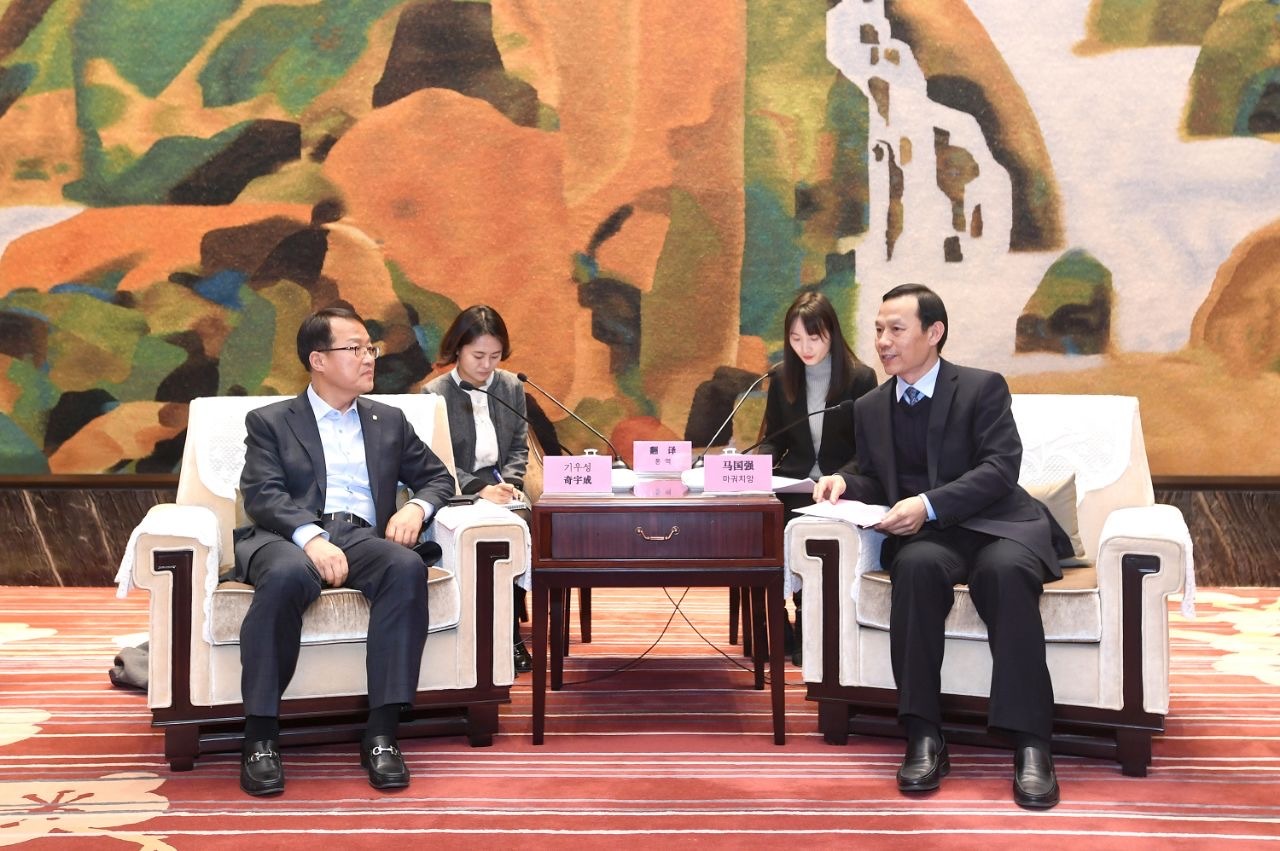Celltrion announced Tuesday that it would build its first plant in Wuhan, China, saying it would be the country’s biggest biologics plant.
Celltrion Group said it had the full support of the Hubei provincial government in setting up the plant, which would be able to manufacture 120,000 liters of biologic drugs. China’s largest current facility can produce 5,000 liters.
 |
Celltrion’s Vice Chairman Kee Woo-sung (left) and Hubei provincial government official Ma GuoQiang discuss business in Wuhan, China, Monday. (Celltrion) |
The city in central China has a geographical advantage in shipping its products to all four corners of the country. It is also a fast-growing bioindustry cluster, housing over 300 relevant research and development facilities, a Celltrion official said. Most recently, it has gained worldwide attention for a mysterious coronavirus that has affected 198 people as of Tuesday afternoon.
Remaining unfazed, Celltrion said it would hold a groundbreaking ceremony for the facility in April.
The Wuhan plant has been assigned a budget of more than 600 billion won ($514 million) through 2025. The funds will come from Celltrion Group’s existing cash reserves as well as outside investments.
This is Celltrion’s first business entity in China.
Celltrion hopes to develop and manufacture biologic drugs for the China market at this Wuhan plant, as well as sign contract manufacturing organization deals with local biotechs.
The establishment of a direct logistics network for its biosimilar products is also underway to target the world’s second-largest health care market -- that is, China -- Celltrion said.
Since 2017, a number of biologic drugs have been added to China’s National Reimbursement Drug List. Local health care policy watchers say this may be a precursor to a leap in biologic drug demand in the country.
Celltrion said it is watching the changing trends in Chinese policies, hoping to continuously export its existing biosimilars Truxima, Remsima and Herzuma, as well as future biosimilars.
Celltrion has a new type of biosimilar in the making called Humira, and also has plans to develop an insulin biosimilar to target the diabetes treatment market.
By Lim Jeong-yeo (
kaylalim@heraldcorp.com)




![[Herald Interview] 'Trump will use tariffs as first line of defense for American manufacturing'](http://res.heraldm.com/phpwas/restmb_idxmake.php?idx=644&simg=/content/image/2024/11/26/20241126050017_0.jpg)

![[Health and care] Getting cancer young: Why cancer isn’t just an older person’s battle](http://res.heraldm.com/phpwas/restmb_idxmake.php?idx=644&simg=/content/image/2024/11/26/20241126050043_0.jpg)

